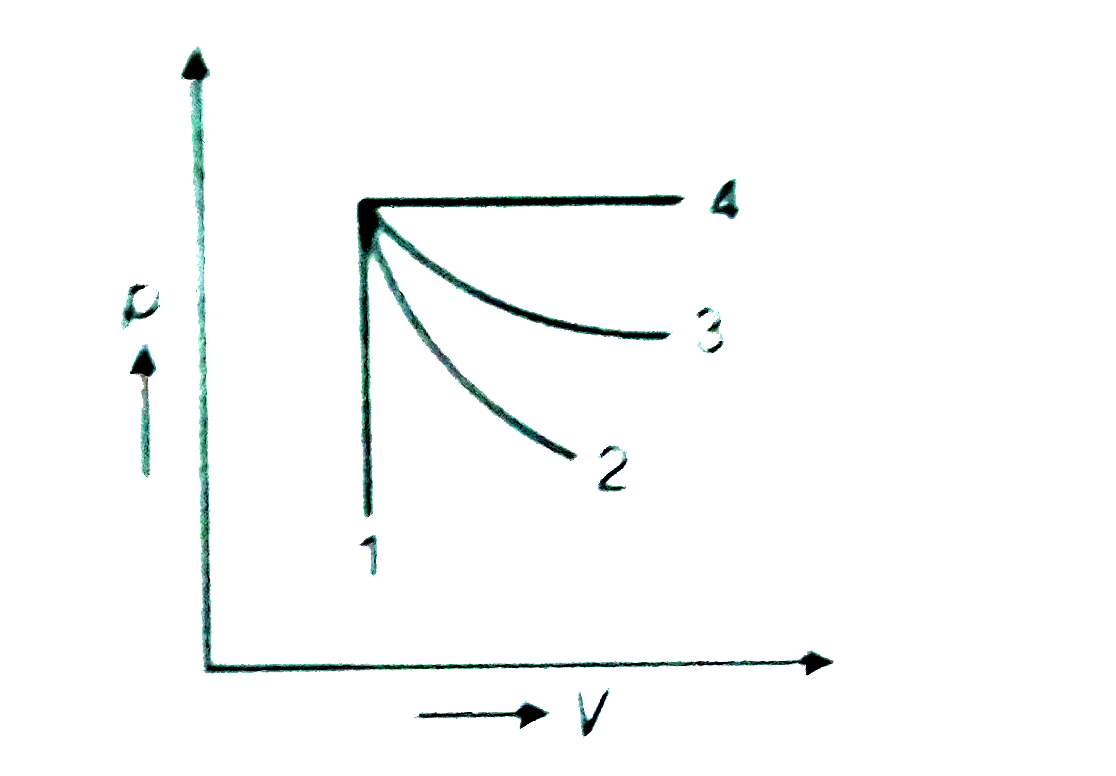An ideal gas undergoes isothermal process from some initial state i to final state f. Choose the correct alternatives.
dU=0
dθ=0
dθ=dU
dw=dw
The correct Answer is:A, D
In isothermal process dU = 0
From dθ=dU+dW when dU=0→dθ=dW
Topper's Solved these Questions
- THERMODYNAMICS BOOK - CBSE COMPLEMENTARY MATERIALCHAPTER - THERMODYNAMICS EXERCISE - NUMERICALS
14 Videos
- ROTATIONAL MOTION BOOK - CBSE COMPLEMENTARY MATERIALCHAPTER - ROTATIONAL MOTION EXERCISE - MULTIPLE CHOICE QUESTIONS
20 Videos
- WORK, ENERGY AND POWERBOOK - CBSE COMPLEMENTARY MATERIALCHAPTER - WORK, ENERGY AND POWEREXERCISE - MCQ
20 Videos
Similar Questions
Knowledge Check
An idel gas undrgoes isothermal process from some initial state i to final state f. Choose the correct alternatives.
AdU=0BdQ=0CdQ=dUDdQ=dWIn an isothermal process for ideal gas.
Aq=0 and ΔE=0Bq≠0 and ΔE=0Cq=0 and ΔE≠0Dq≠0 and ΔE≠0For an ideal gas, in an isothermal process
AHeat content remains constantBHeat content and temperature remain constantCTemperature remains constantDNone of the above
An ideal gas undergoes change in its state from the initial state I to the final state F via two possible paths as shown. Then

View SolutionAn ideal gas undergoes for different processes from the same initial state (figure). Four processes are adiabatic, isothermal, isobaric and isochoric. Out of 1, 2, 3 and 4 which one is adiabatic ?

View SolutionOne mole of a monatomic gas and one mole of a diatomic gas are initially in the same state. Both gases are expanded isothermally and then adiabatically such that they acquire the same final state. Choose the correct statement.
View SolutionAn ideal gas system undergoes an isothermal process, then the work done during the process is
View SolutionAn ideal gas system undergoes an isothermal process, then the work done during the process is
View Solution
